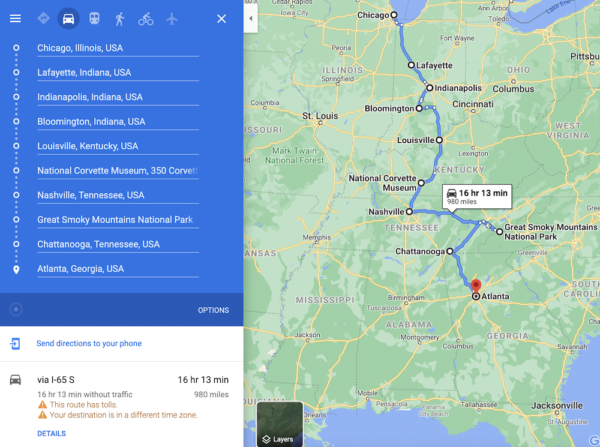
Los latinoamericanos han volado a la Florida por años. Especialmente argentinos y brasileños se han disputado por décadas los records de visitantes de ese mercado. Pero en el caso de los primeros han ignorado una vasta zona llena de bellezas incomparables, distintas y que tienen la ventaja de estar al alcance de un cómodo vuelo directo desde Buenos Aires que Delta opera diariamente.
Aquí empieza, The Post, una introducción y una sugerencia a esa exploración nueva. En distintas entregas que comienzan hoy trataremos de acercar un resumen de lo mejor de una geografía que, haciendo centro en Atlanta, Georgia, cubre un radio de mas De 2000 km (uno puede hacerlo tan corto o tan largo como quiera, obviamente) y que nos llevará por la ciudad de Martin Luther King Jr y Coca Cola hasta las puertas de Chicago, pasando por el imponente Parque Nacional de las Smoky Mountains, Nashville e Indianápolis.
La ciudad del inicio: Atlanta: historia viva, diversidad vibrante y atracciones que sorprenden
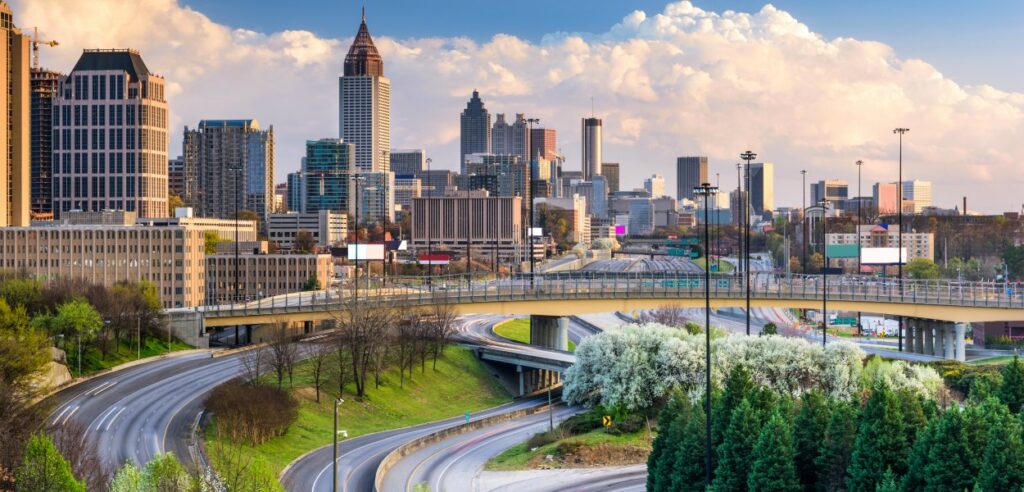
Por mucho tiempo conocida como “la ciudad en un bosque” por su abundancia de árboles, Atlanta ha sido testigo y protagonista de algunos de los capítulos más decisivos de la historia estadounidense. Desde su rol en la Guerra Civil hasta su lugar clave en el movimiento por los derechos civiles, la capital de Georgia se reinventa constantemente sin perder de vista sus raíces.
De la Guerra Civil al epicentro de los derechos civiles
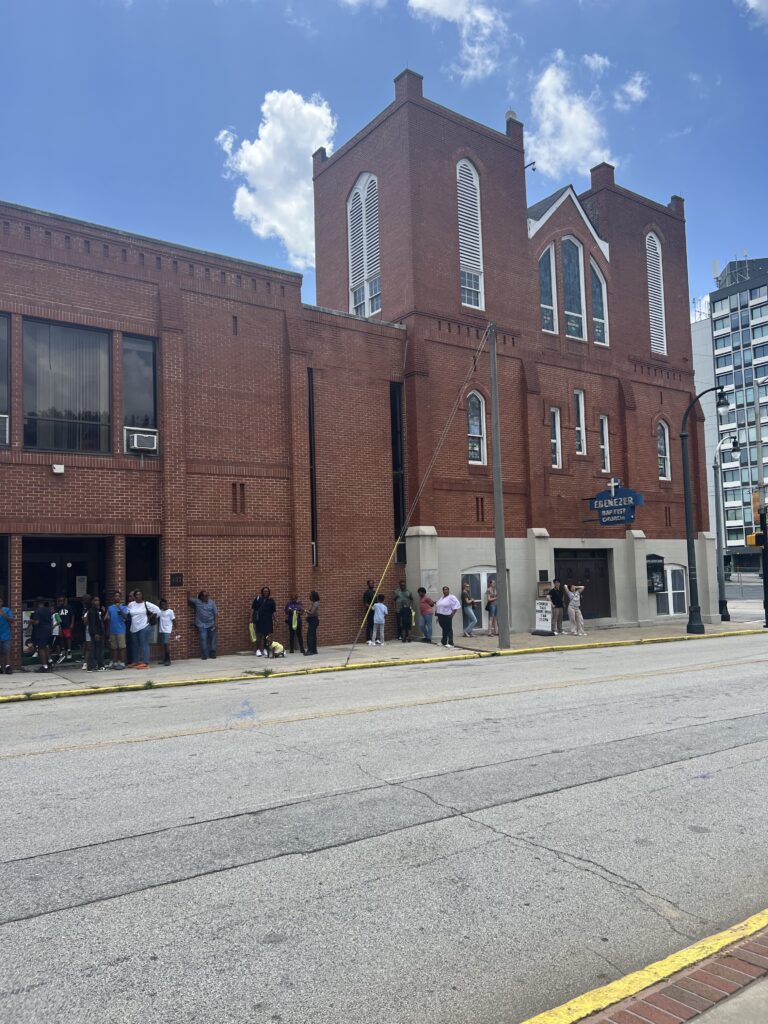
Fundada en 1837 como un centro ferroviario, Atlanta fue prácticamente arrasada durante la Guerra Civil. Sin embargo, renació como símbolo del “Nuevo Sur” y, con el tiempo, se convirtió en una ciudad clave para el comercio, la cultura y la política del país.
A mediados del siglo XX, Atlanta fue un faro del movimiento por los derechos civiles, con figuras como Martin Luther King Jr. nacidas en su seno. El reverendo King predicó en la Ebenezer Baptist Church, donde años más tarde su madre, Alberta Williams King, fue asesinada mientras tocaba el órgano durante una misa. Hoy, la iglesia forma parte del Martin Luther King Jr. National Historical Park, uno de los sitios más conmovedores para entender el legado de justicia e igualdad.
Legados olímpicos y símbolos ciudadanos


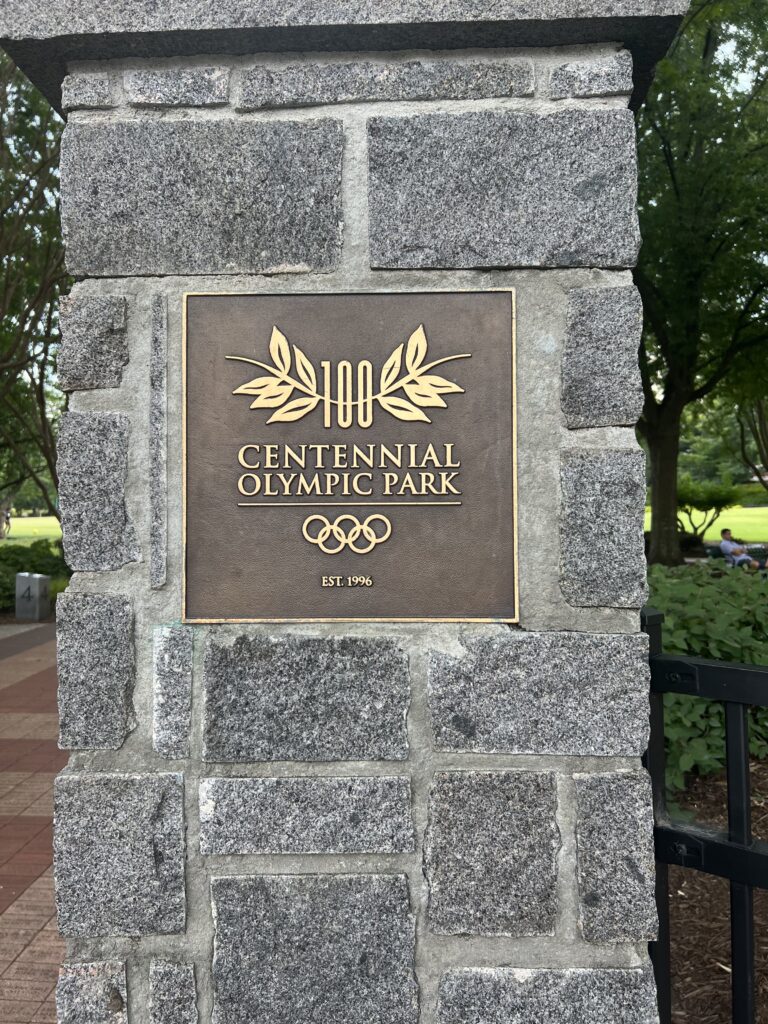
Uno de los espacios que mejor sintetiza la identidad moderna de Atlanta es el Centennial Olympic Park, legado de los Juegos Olímpicos de 1996. Entre sus senderos adoquinados se pueden encontrar ladrillos grabados con los nombres de miles de personas que contribuyeron a financiar la obra: ciudadanos que quisieron “dejar su huella” en la historia urbana. Allí también se encuentra The Fountain of Rings, una fuente interactiva con espectáculos de agua y luz al compás de música, favorita de grandes y chicos.
Mercedes-Benz Stadium: sede de un mundial
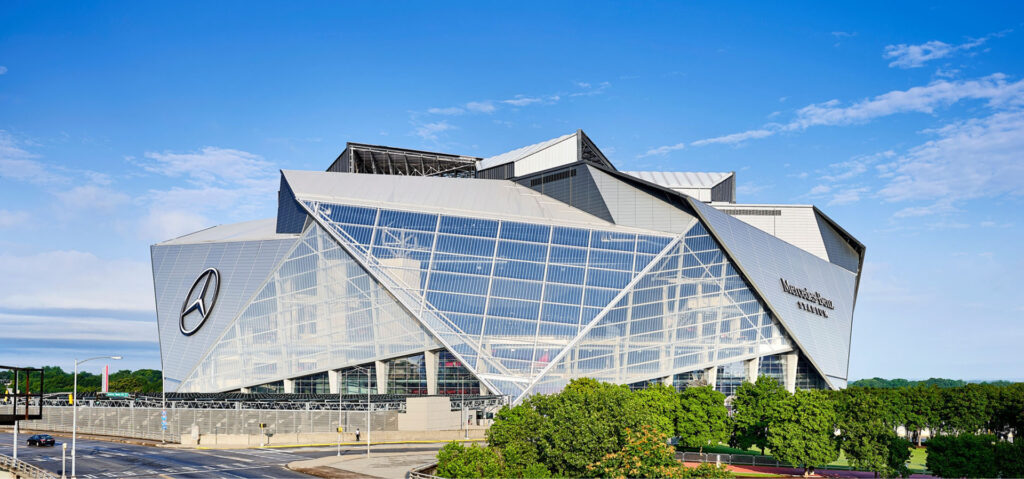
A solo unos pasos del parque se alza el Mercedes-Benz Stadium, hogar de los Atlanta Falcons (NFL) y Atlanta United (MLS). Este recinto vanguardista no solo deslumbra por su techo retráctil y su pantalla circular de 360°, sino que además será sede oficial del Mundial FIFA 2026 con ocho partidos por disputarse aquí, lo que coloca nuevamente a Atlanta en el centro del escenario deportivo global.
Entre lo retro y lo moderno: barrios y experiencias únicas
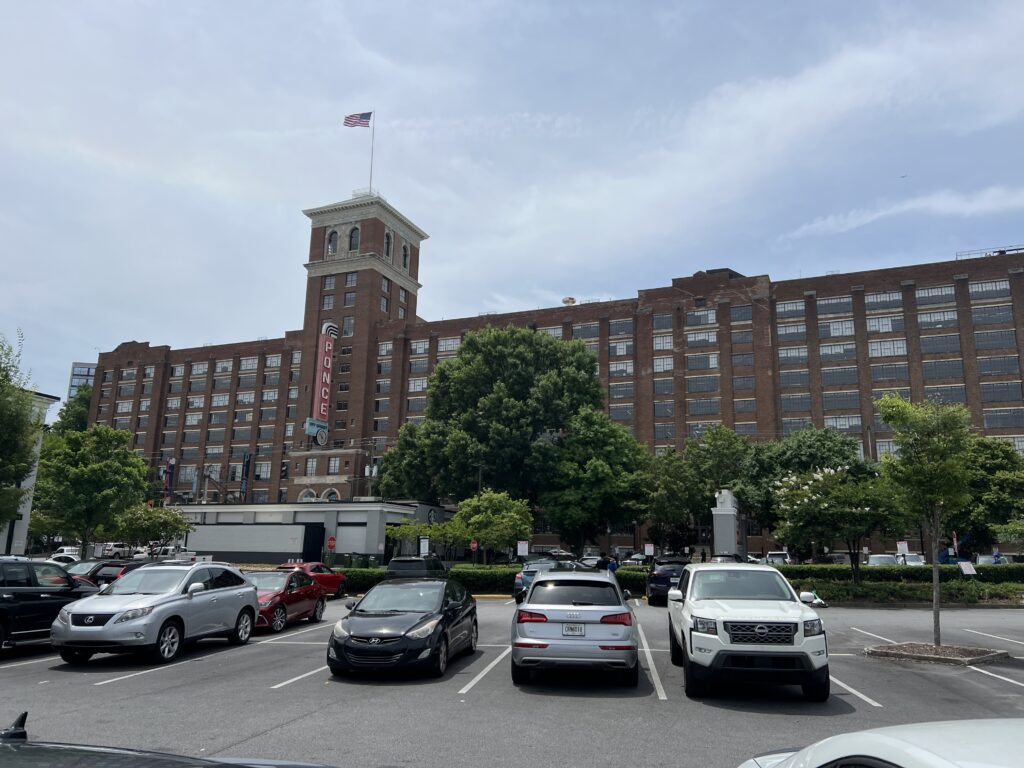
Atlanta también es una ciudad que abraza lo contemporáneo con gusto y estilo. El Ponce City Market, instalado en una antigua sede de Sears, mezcla tiendas de diseño, gastronomía, librerías y terrazas con vista panorámica. Durante el verano, el Virginia-Highland Summer Fest transforma uno de los barrios más pintorescos de la ciudad en un festival de arte, música y comidas al aire libre.
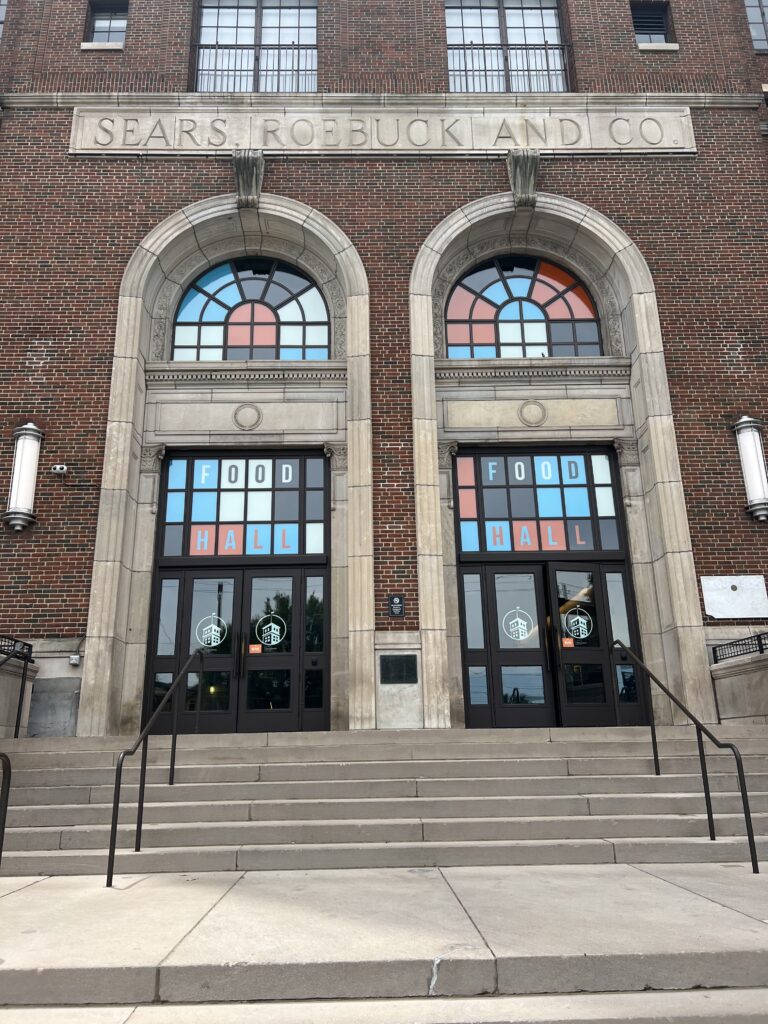
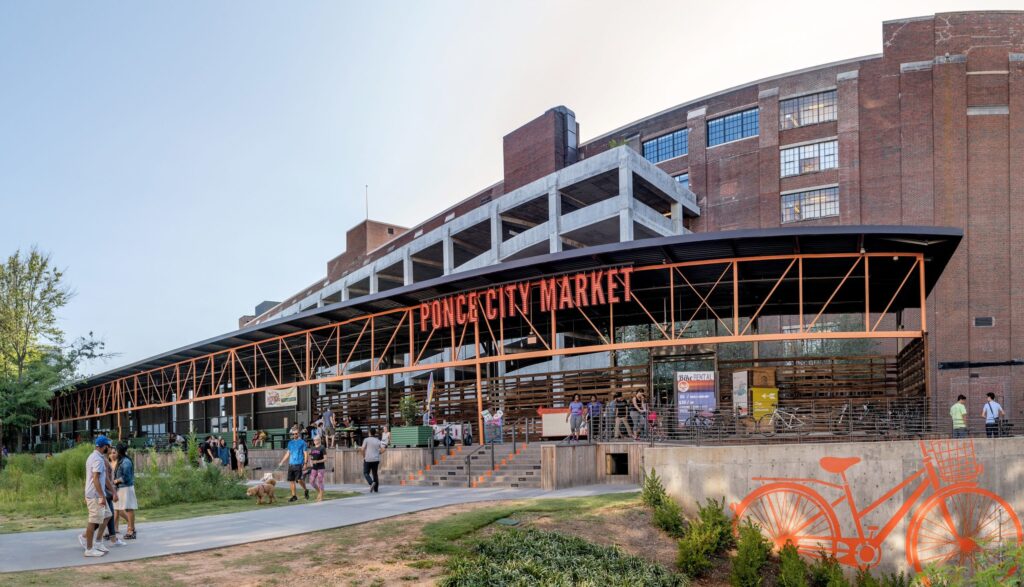
Otros atractivos imperdibles para visitantes:
- SkyView Atlanta, una rueda panorámica de más de 60 metros de altura, ideal para vistas inolvidables del downtown.
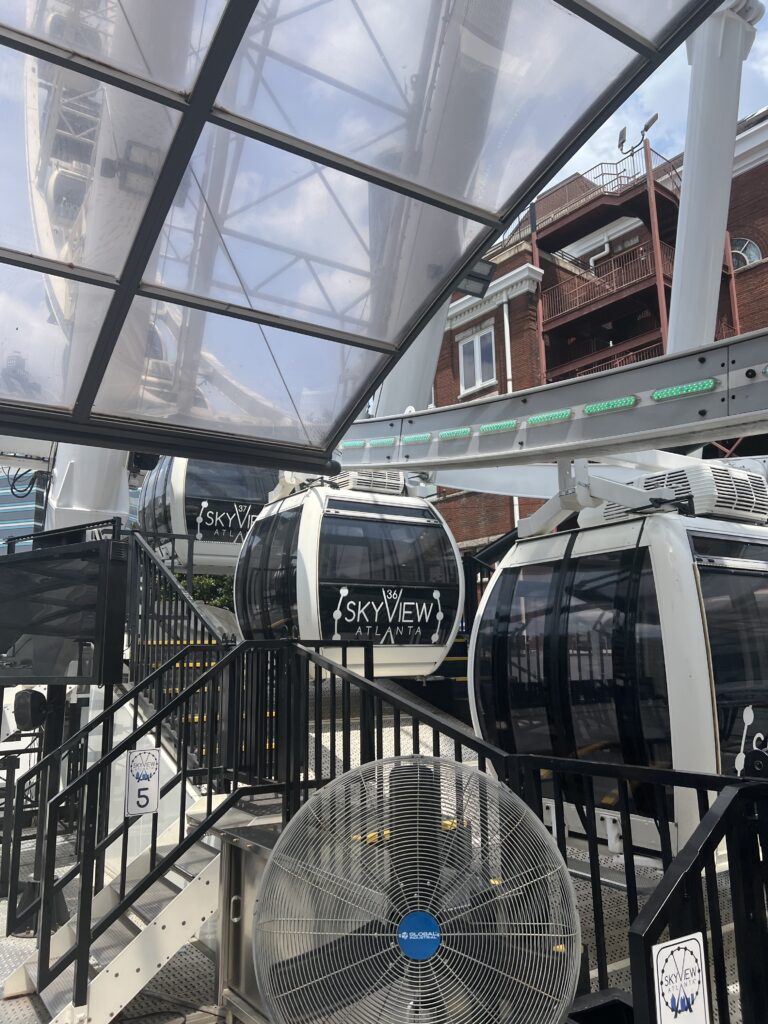
- ATL Electric City Tour, una excursión en carrito eléctrico que recorre los barrios más emblemáticos con guía incluida.

Georgia Aquarium: gigantes bajo techo

El Georgia Aquarium es uno de los más grandes del mundo y hogar de criaturas marinas espectaculares, desde mantarrayas hasta tiburones martillo. Pero su mayor atracción es el tiburón ballena, el pez más grande del planeta. Lo curioso es que estos ejemplares llegaron desde Taiwán transportados en aviones de FedEx, dentro de tanques presurizados y con un operativo logístico que incluyó veterinarios en vuelo. Hoy, nadan libremente en un tanque de 23 millones de litros, replicando su hábitat natural con sorprendente realismo.
World of Coca-Cola: el secreto mejor guardado
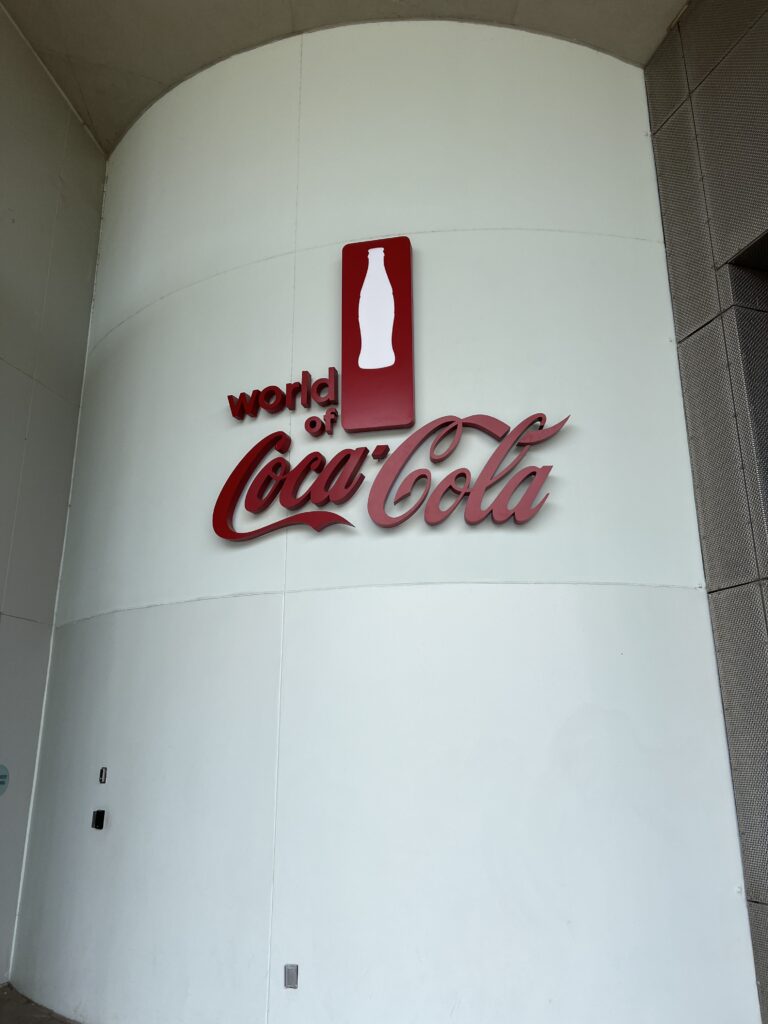

Justo frente al acuario, el World of Coca-Cola ofrece un viaje inmersivo a la historia de la bebida más famosa del mundo, creada en Atlanta en 1886. Entre exhibiciones, publicidades históricas y salas de degustación con sabores de todo el mundo, destaca una atracción singular: la bóveda que guarda la fórmula secreta de la Coca-Cola. El acceso está restringido, pero la bóveda es visible y forma parte de la narrativa del museo: una mezcla de historia, marketing y mito moderno.
College Football Hall of Fame: pasión personalizada
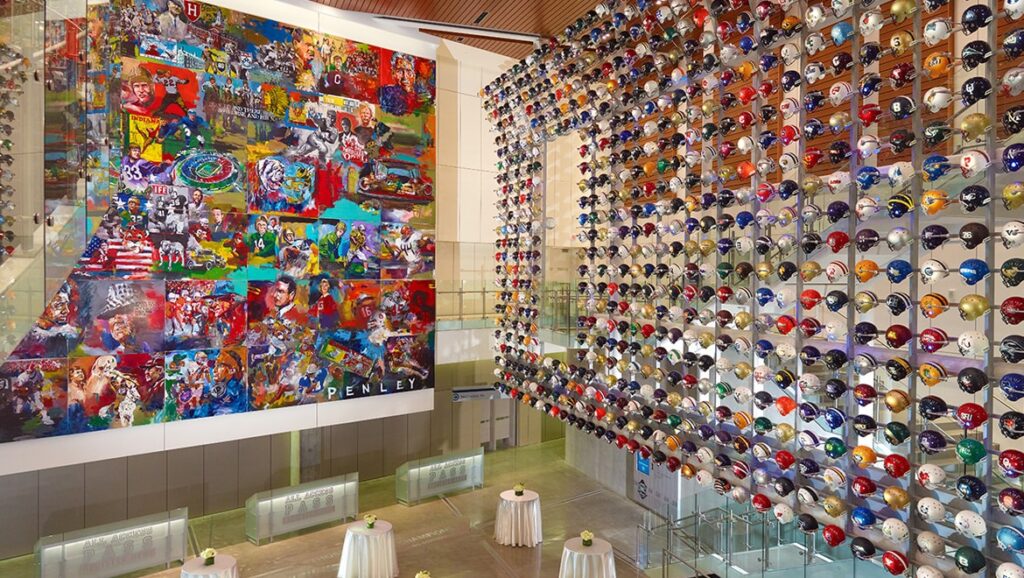
A pocas cuadras, el College Football Hall of Fame rinde homenaje al deporte universitario con exhibiciones interactivas y experiencias inmersivas. Al ingresar, los visitantes registran su universidad favorita, y una enorme pared con más de 700 cascos se ilumina destacando el del equipo elegido, en una bienvenida personalizada que emociona tanto a fanáticos como a curiosos. Una forma original de conectar con la pasión universitaria que mueve multitudes en todo el país.
El lugar tiene una interesante area en donde los visitantes pueden practicar pasar la pelota como si un fuera un quarterback. La idea es tratar de llegar a un red medio mundo que haría las veces del jugador que recibe el pase.
Luego uno puede patear a los palos como si fuera una conversion al estilo del famoso argentino Gramática. Confieso que mi lanzamiento de manos quedó apenas corto del objetivo pero mi zurdazo entró justo por arriba del travesaño al lado del palo derecho de la “U”: golazo. Fue muy divertido.
El ascenso y caída del Underground Atlanta (¿y su renacimiento con `Netflix?)
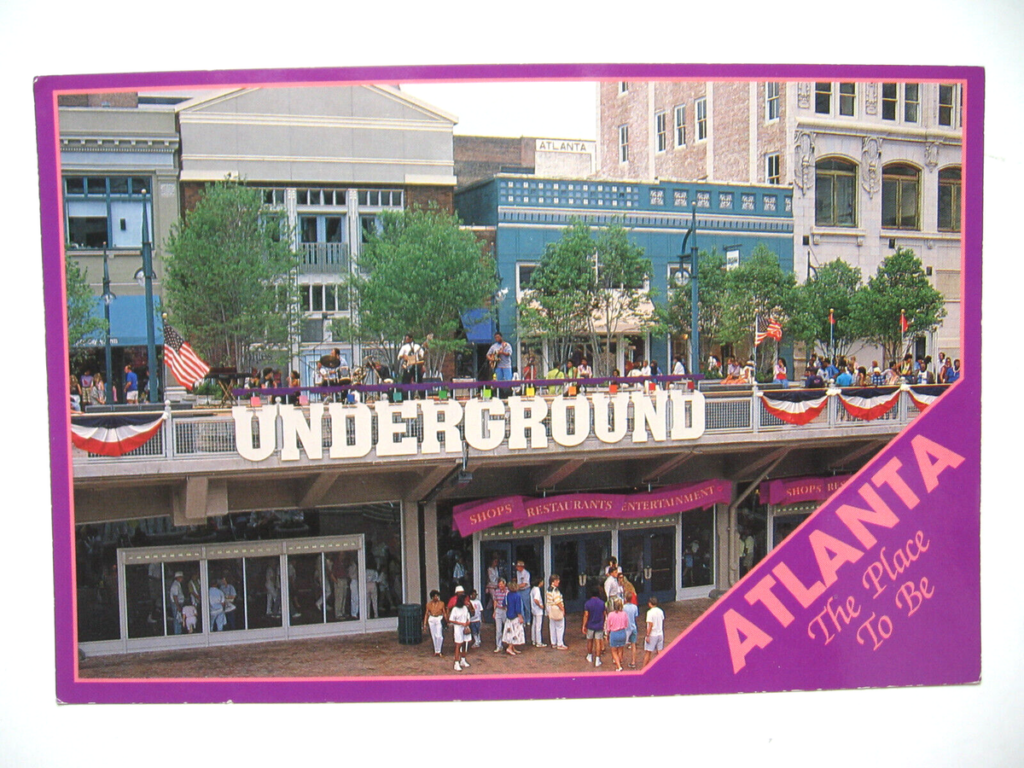
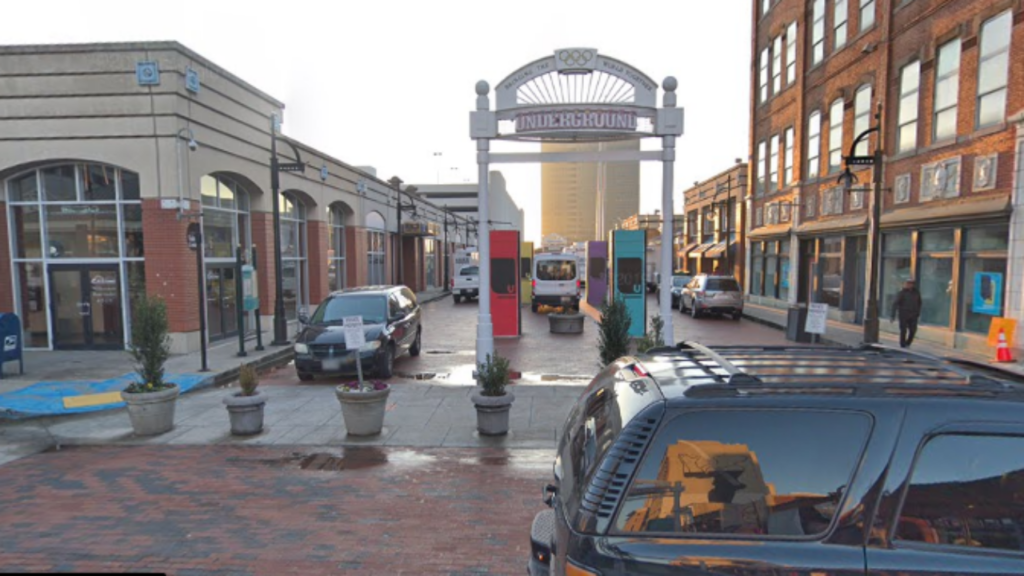
El Underground Atlanta fue en su momento un centro comercial subterráneo vibrante, ícono del renacimiento urbano en los años 70. Sin embargo, entró en decadencia con el tiempo y quedó relegado… hasta ahora. En 2022, Netflix adquirió parte del complejo para usarlo como escenario de producción, incluida la serie Stranger Things. El interés de la plataforma podría impulsar una nueva vida para esta zona olvidada, devolviéndole el brillo de antaño con un toque de ciencia fiction
CNN: un cierre simbólico
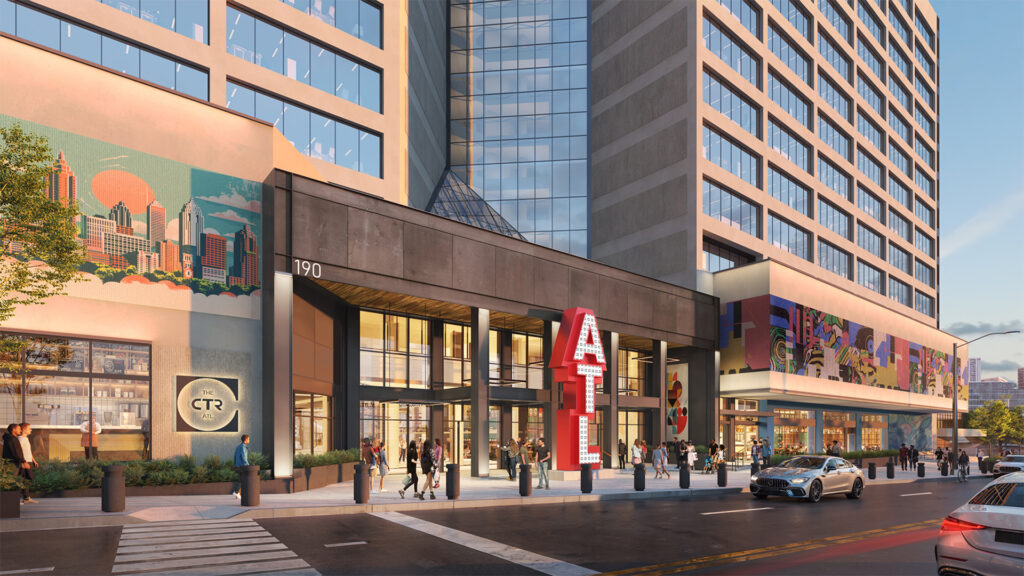
Durante más de tres décadas, el CNN Center fue emblema del periodismo global con sede en Atlanta. En 2023, la cadena finalizó su mudanza al campus Techwood para unificar operaciones, marcando el fin de una era. Si bien ya no ofrece tours, el edificio sigue siendo un ícono del downtown, y su reconversión apunta a combinar espacios residenciales, estudios de producción y oficinas, en una nueva etapa para este punto histórico de la ciudad.
Sweet Auburn: La cuna del orgullo afroamericano en Atlanta
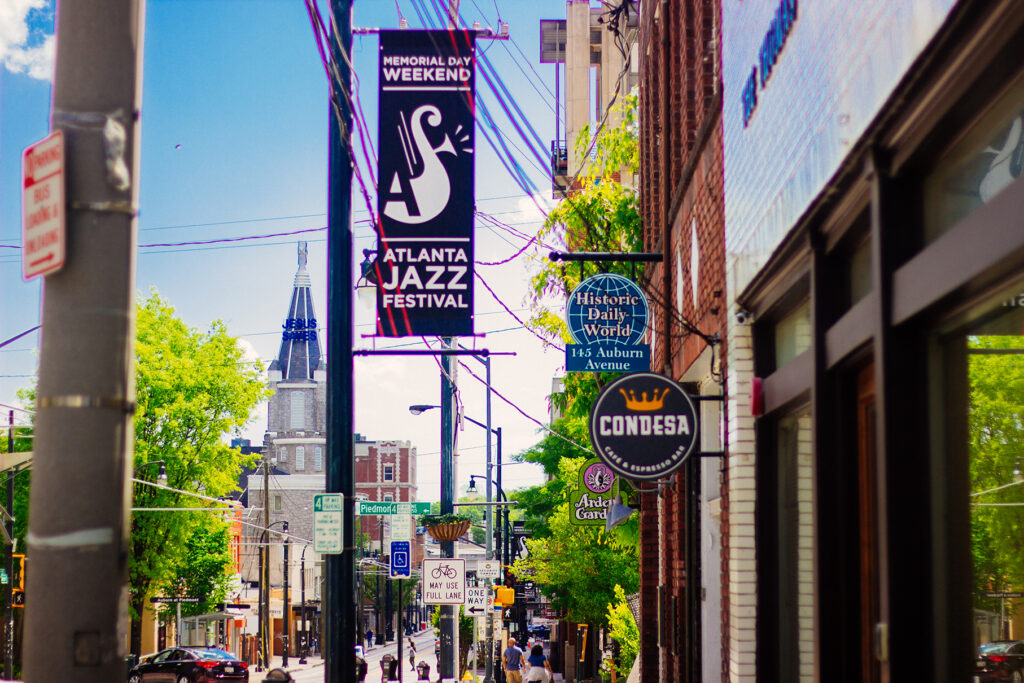
En el corazón del este de Atlanta, lejos del brillo de los rascacielos y del bullicio turístico de Midtown, se encuentra un barrio que fue, durante décadas, sinónimo de resiliencia, emprendimiento y liderazgo afroamericano: Sweet Auburn. Allí mismo, una calle cambió la historia, y un mercado contó (y aún cuenta) lo que significa ser parte del alma de una ciudad que se debate entre el progreso y la memoria.
El Sweet Auburn Curb Market: un mercado con historia de lucha y sabor
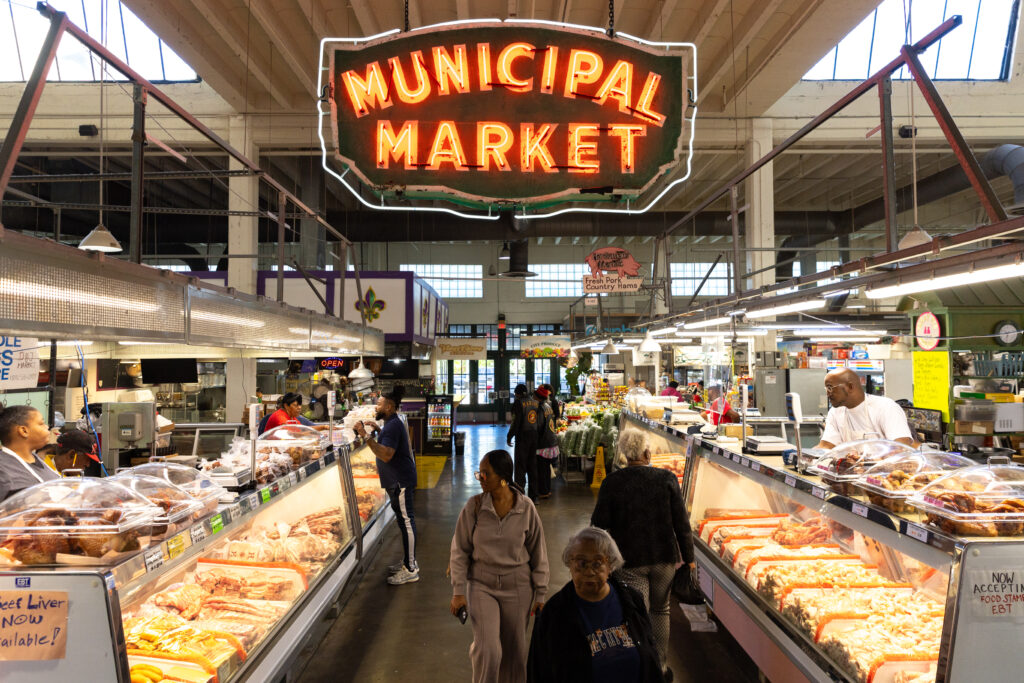
El Sweet Auburn Curb Market, oficialmente llamado Municipal Market, nació en 1918, en un contexto aún golpeado por la gran pandemia de gripe y los efectos de la segregación racial. Era el único lugar donde los granjeros negros podían vender sus productos, aunque al principio lo hacían en la vereda, ya que no se les permitía acceder al interior del edificio. De ahí surgió su apodo: “Curb Market” (mercado de la acera).
Con el paso del tiempo, el mercado se convirtió en un refugio de cultura, sabor y comunidad. A lo largo del siglo XX, fue mucho más que un sitio de comercio: fue punto de encuentro, símbolo de esfuerzo colectivo, y una ventana a la cocina sureña en su versión más auténtica.
Hoy, el mercado sigue funcionando, con puestos de frutas, carnes, especias, panaderías y pequeños restaurantes que conservan la esencia local. Entre sus pasillos, se pueden saborear platos tradicionales como el gumbo, el pastel de camote o el pollo frito, mientras se respira una historia que resiste el olvido.
Auburn Avenue: la calle de los negros millonarios
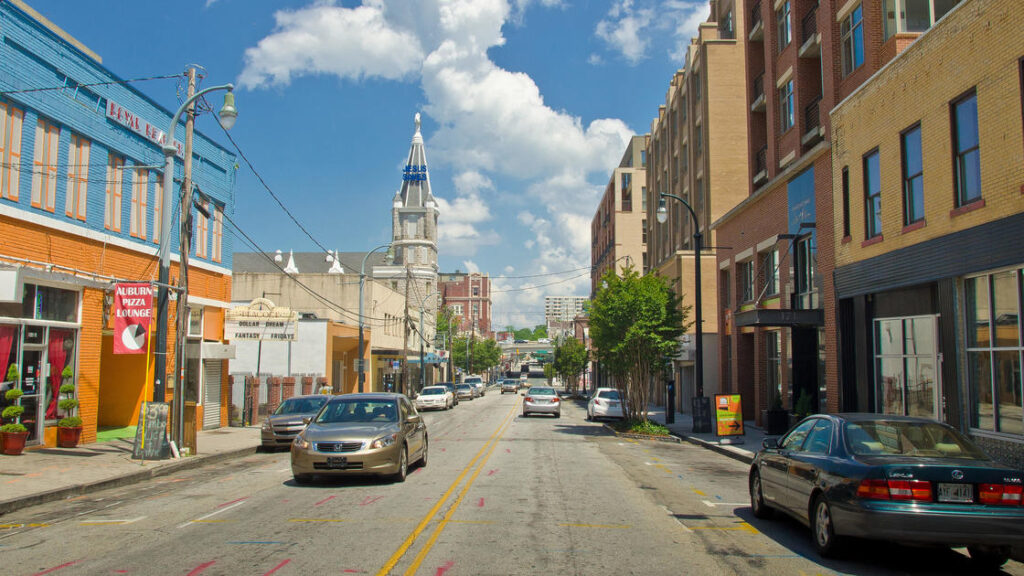
A pocos pasos del mercado corre Auburn Avenue, una calle que alguna vez fue llamada por el escritor John Wesley Dobbs como “la calle de los negros millonarios”. No era una exageración. Durante las décadas de 1920 a 1950, esta avenida fue el epicentro del poder económico y político afroamericano en el sur de Estados Unidos.
Aquí florecieron bancos, aseguradoras, peluquerías, imprentas, restaurantes, y periódicos afroamericanos, como el célebre Atlanta Daily World. Auburn Avenue fue también hogar de Martin Luther King Jr., cuyo legado puede conocerse en detalle en el Martin Luther King Jr. National Historical Park, que abarca su casa natal, su iglesia (Ebenezer Baptist) y su tumba.
En esos años, Auburn Avenue no solo era un símbolo de progreso, sino también un acto de resistencia. En una ciudad marcada por la segregación, aquí los afroamericanos construyeron una red económica independiente, demostrando que la dignidad no depende de las leyes sino del espíritu.
Decadencia, olvido y renacimiento
La construcción de la interestatal I-75/I-85 en los años 50 dividió el barrio y cortó su vitalidad. Como pasó en tantas otras ciudades estadounidenses, una autopista trazada con criterios urbanísticos cuestionables terminó fragmentando comunidades afroamericanas enteras. Sweet Auburn entró en decadencia.
Pero hoy, gracias a la lucha de vecinos, fundaciones y emprendedores jóvenes, la zona vive un proceso de revitalización, con nuevas inversiones, recorridos históricos, murales que recuperan la memoria y un renovado interés por su valor cultural.
Visitar hoy Sweet Auburn
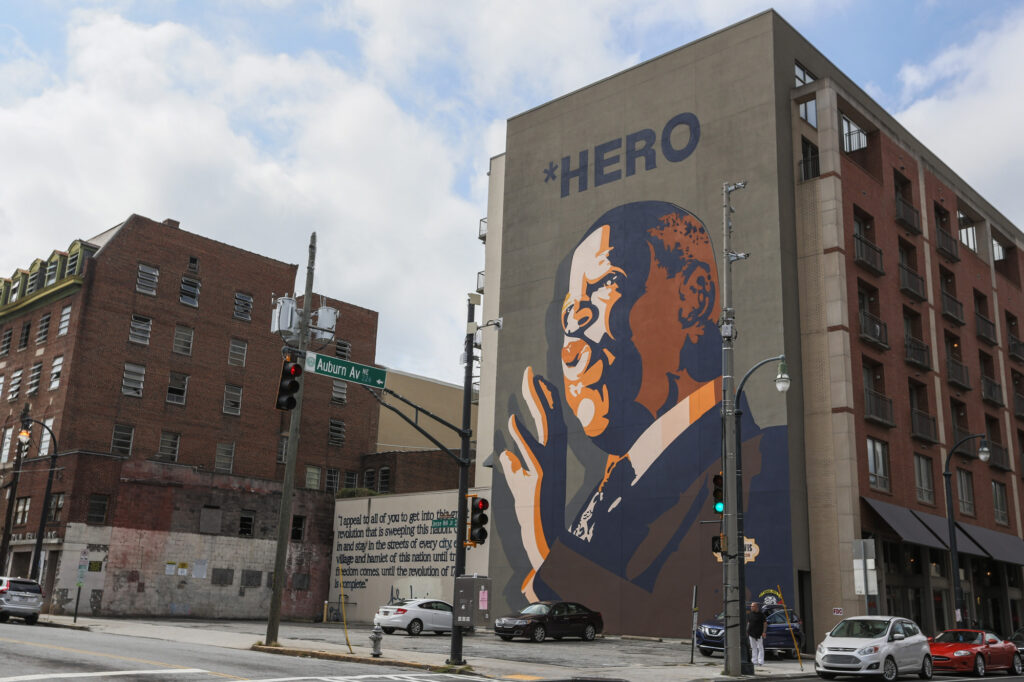
Quien visita Atlanta y solo recorre sus zonas más turísticas, se pierde de uno de sus tesoros más profundos. Caminar por Auburn Avenue, probar un plato local en el Curb Market, entrar a Ebenezer Baptist Church o detenerse frente a las placas que narran las conquistas del pasado, no es simplemente turismo: es una inmersión en la historia viva de una comunidad que cambió Estados Unidos.
Sweet Auburn es, aún hoy, un testimonio de orgullo, de lucha y de esperanza afroamericana, en una ciudad que no puede ni debe olvidar el suelo en el que se levantó.
Una ciudad que nunca deja de transformarse
Atlanta no es solo una ciudad con historia: es una ciudad que hace historia. Cosmopolita pero con alma sureña, herida y resiliente, moderna y profundamente humana. Ya sea paseando por un parque olímpico, recorriendo una iglesia histórica, probando delicias en un mercado centenario o contemplando tiburones que viajaron en avión, Atlanta invita a mirar el pasado y el futuro al mismo tiempo.
Próxima entrega: Donde comer en Atlanta. Miller Union y Fox Bros BBQ
English version
The Post presents a new option for Argentine travelers: A fascinating four-stage road trip. Here’s the first part: Atlanta. Final destination: Chicago
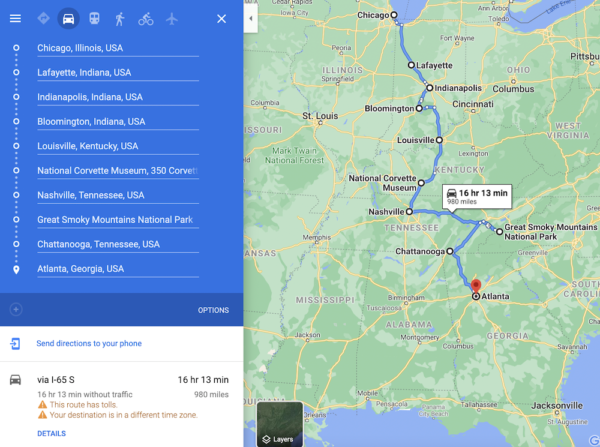
Latin Americans have been flying to Florida for years. Argentines and Brazilians in particular have been vying for records in that market for decades. But in the case of the former, they have ignored a vast area filled with incomparable and distinct beauty and the advantage of being within easy reach of a convenient direct flight from Buenos Aires, operated daily by Delta.
Here begins, The Post, an introduction and a suggestion for that new exploration. In various installments starting today, we’ll try to summarize the best of a geography that, centered in Atlanta, Georgia, covers a radius of about 1,500 km (you can make it as short or as long as you like, obviously), and that will take us through the city of Martin Luther King Jr. and Coca-Cola to the gates of Chicago, passing through the imposing Smoky Mountains National Park, Nashville, and Indianapolis.
Where everything starts. Atlanta: A City of Living History, Vibrant Diversity, and Surprising Attractions
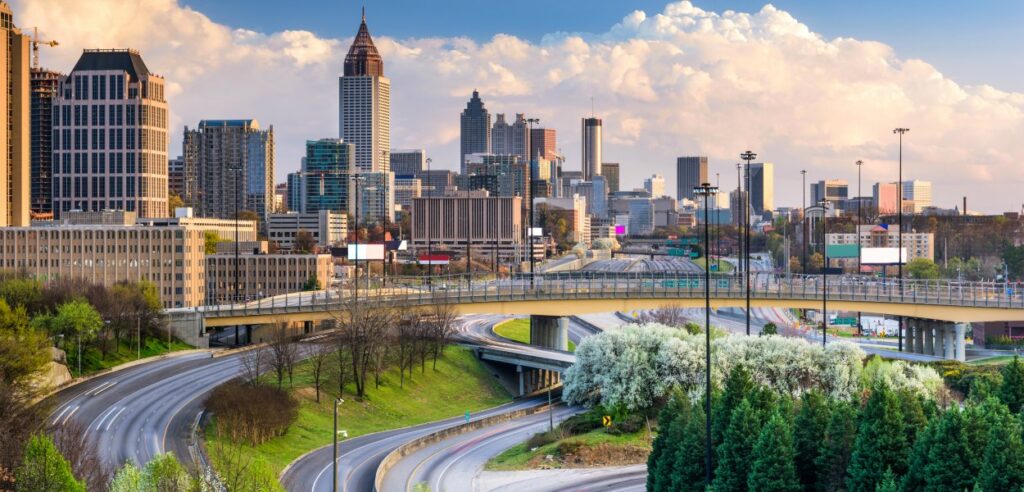
Often called “the city in a forest” due to its lush tree canopy, Atlanta has stood at the crossroads of some of America’s most defining moments. From its role in the Civil War to its place at the heart of the Civil Rights Movement, Georgia’s capital is a city that constantly reinvents itself without forgetting where it came from.
From the Civil War to the Civil Rights Capital
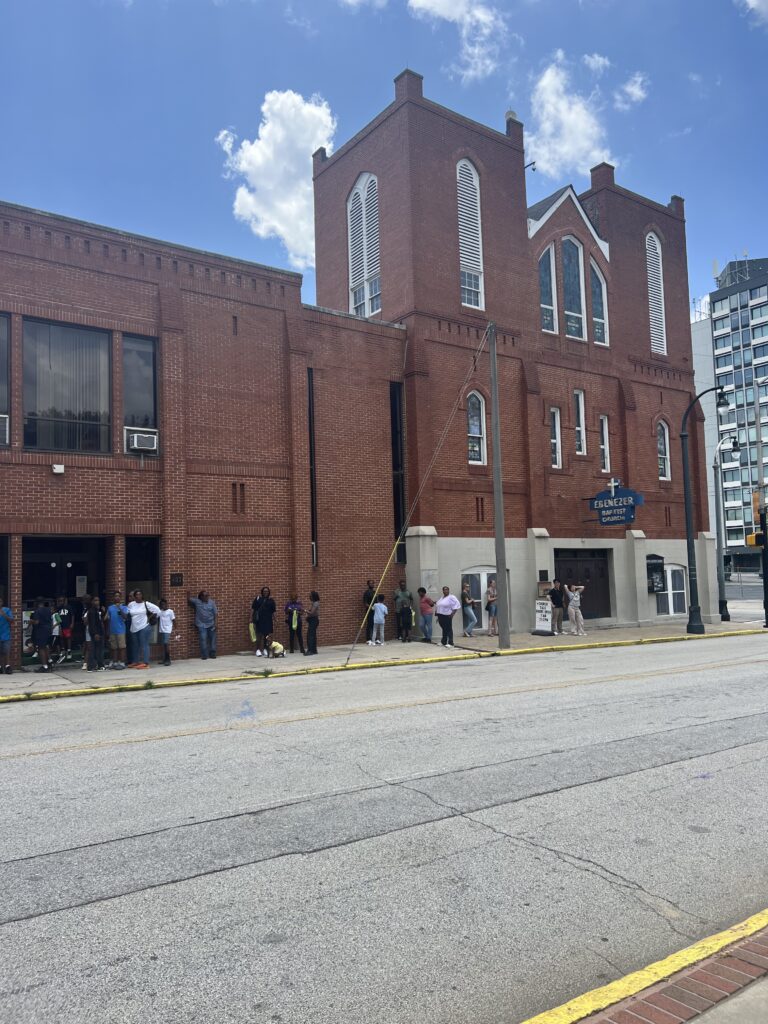
Founded in 1837 as a railway hub, Atlanta was nearly burned to the ground during the Civil War. But it rose from the ashes as a symbol of the “New South,” evolving into a major hub of commerce, culture, and political influence.
In the 20th century, Atlanta became a beacon of the Civil Rights Movement, with leaders like Dr. Martin Luther King Jr. born and raised here. King preached at Ebenezer Baptist Church, where his mother, Alberta Williams King, was later assassinated while playing the organ during a service. The church is now part of the Martin Luther King Jr. National Historical Park, a deeply moving site that reflects Atlanta’s historic fight for justice and equality.
Olympic Legacy and Civic Symbols


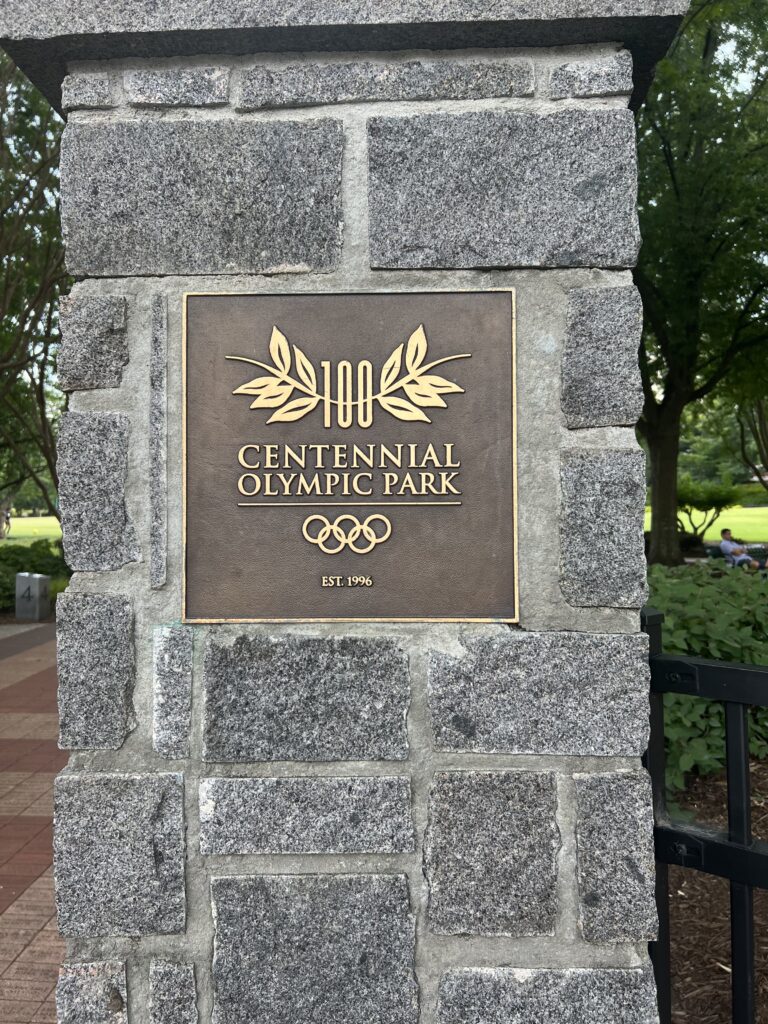
One of Atlanta’s most iconic landmarks is the Centennial Olympic Park, built for the 1996 Summer Olympics. Woven into its brick pathways are personalized bricks purchased by donors, each inscribed with names as a way for people to “leave their mark” on the city. The park is also home to The Fountain of Rings, an interactive water and light show synchronized to music, a crowd favorite for families and visitors alike.
Mercedes-Benz Stadium: World Cup Spotlight

Just steps from the park stands the impressive Mercedes-Benz Stadium, home to the AtlantaFalcons (NFL) and Atlanta United (MLS). Known for its futuristic retractable roof and 360° video halo board, the stadium will be one of the official venues for the FIFA World Cup in 2026 (with eigth games to be played there) reaffirming Atlanta’s global status in the world of sports.
Neighborhoods and Unique Experiences
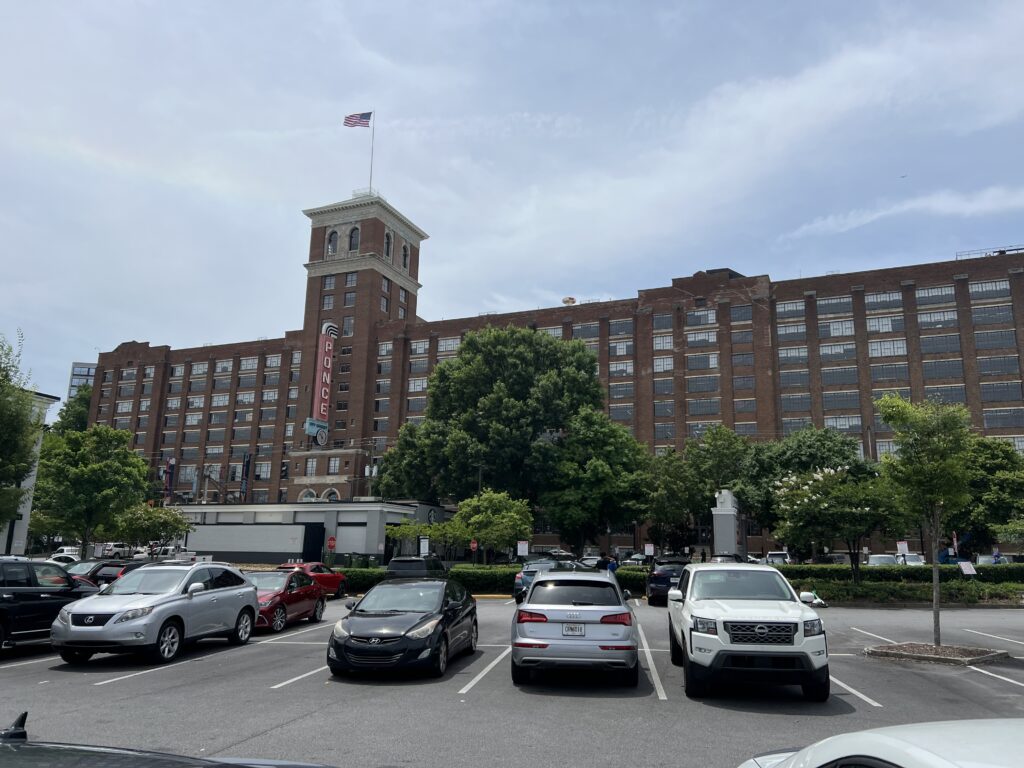
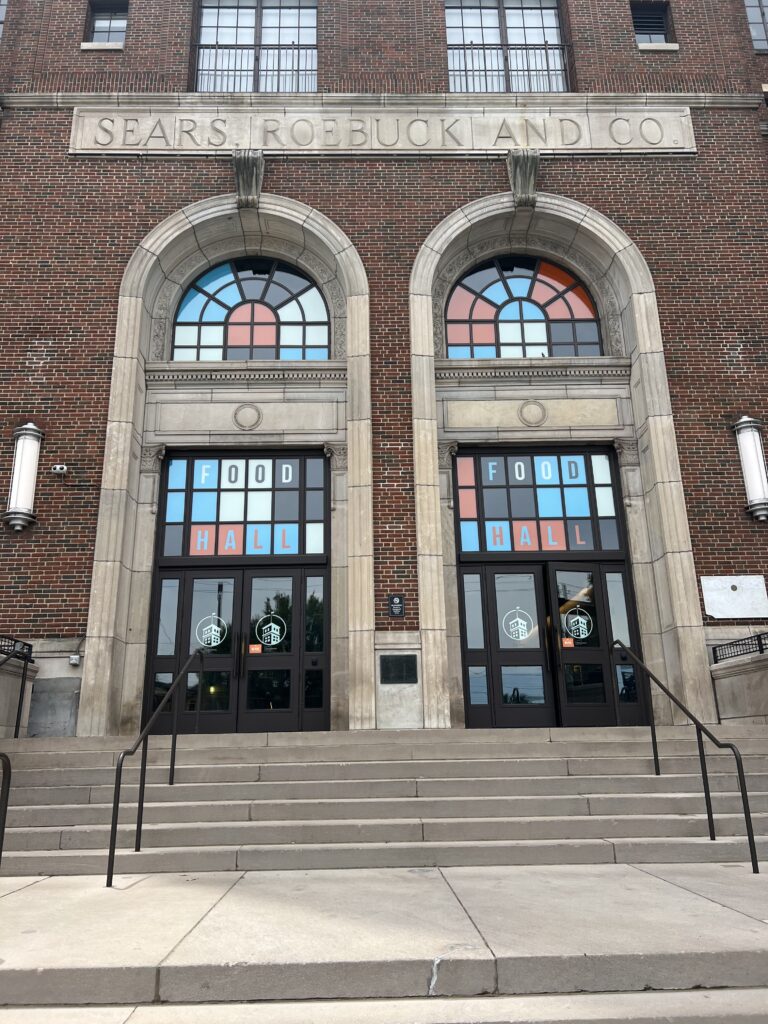
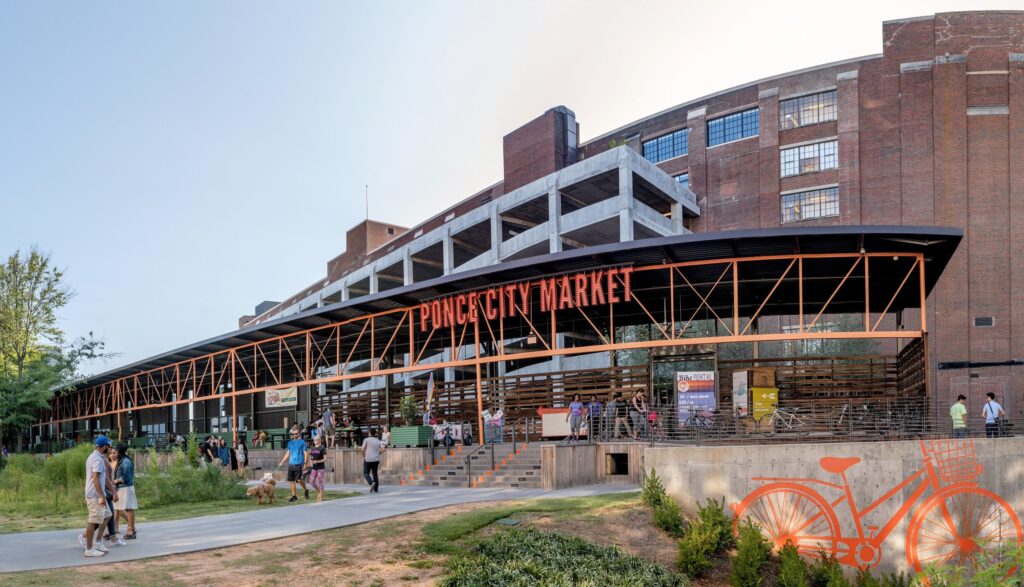
Modern Atlanta thrives in revitalized districts like Ponce City Market, a former Sears warehouse turned into a stylish complex of boutiques, restaurants, bookstores, and rooftop views. In the charming Virginia-Highland neighborhood, the Virginia-Highland Summer Fest transforms tree-lined streets into a summer celebration of music, food, and art.
Other not-to-miss stops include:
- SkyView Atlanta, a 20-story Ferris wheel with unforgettable views of the skyline.
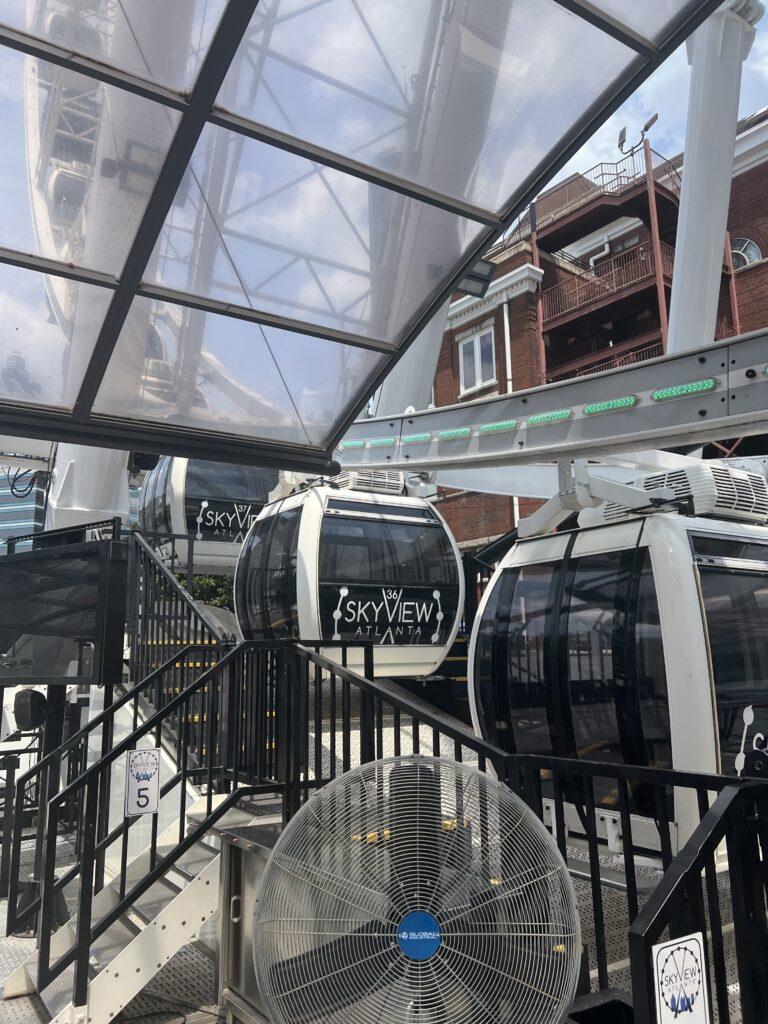
- ATL Electric City Tour, a guided electric cart tour through the city’s most iconic neighborhoods.
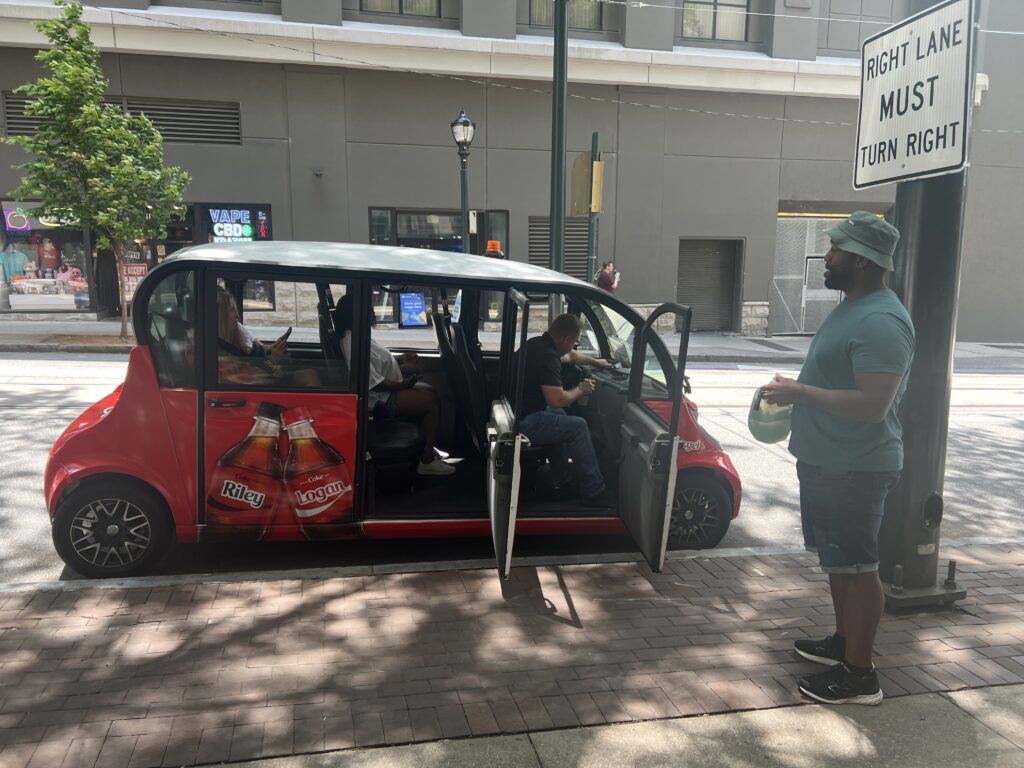
Georgia Aquarium: Ocean Giants, Flown in by FedEx

The Georgia Aquarium is one of the largest in the world, housing everything from manta rays to hammerhead sharks. But its stars are the whale sharks, the largest fish on Earth. The fascinating backstory? These massive creatures were flown from Taiwan in specially equipped FedEx planes, complete with pressurized tanks and onboard veterinarians. Now they swim peacefully in a 6.3 million-gallon tank that mimics their natural habitat.
World of Coca-Cola: The Secret in the Vault
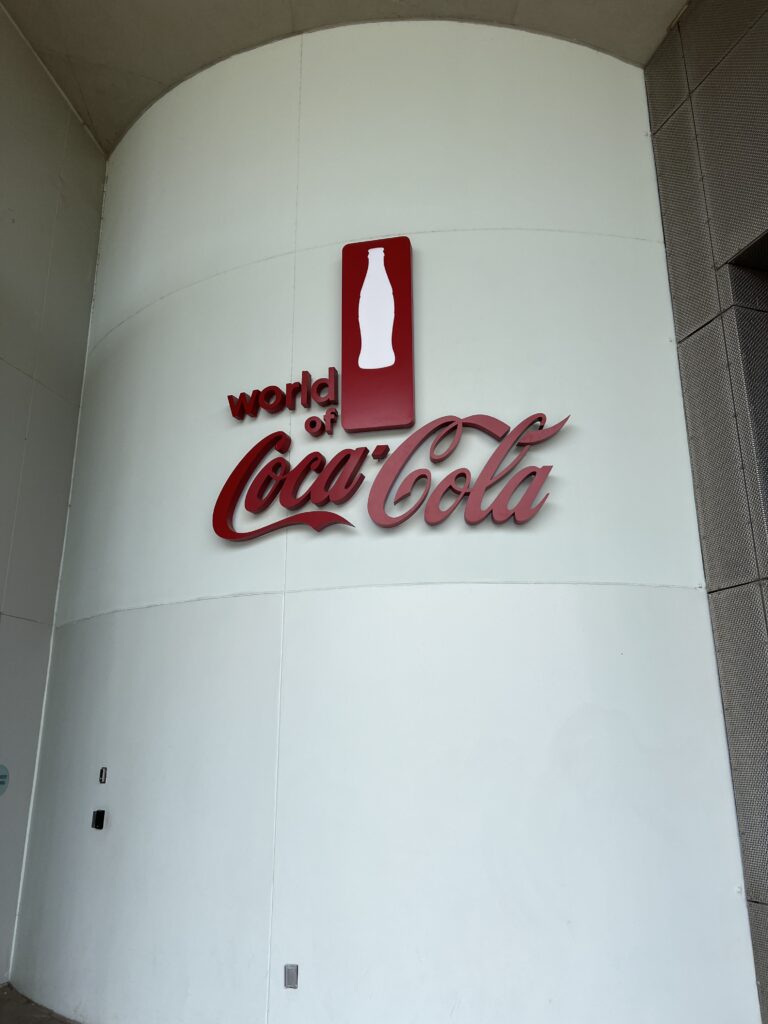

Right across from the aquarium is the World of Coca-Cola, an immersive journey through the history of the world’s most famous beverage, born in Atlanta in 1886. Beyond vintage ads and global soda tasting stations, one exhibit draws particular intrigue: a vault that supposedly holds the brand’s top-secret formula. While visitors can’t see inside, the vault itself is on display—adding to the lore surrounding Coca-Cola’s mystique and marketing genius.
College Football Hall of Fame: A Personal Touch
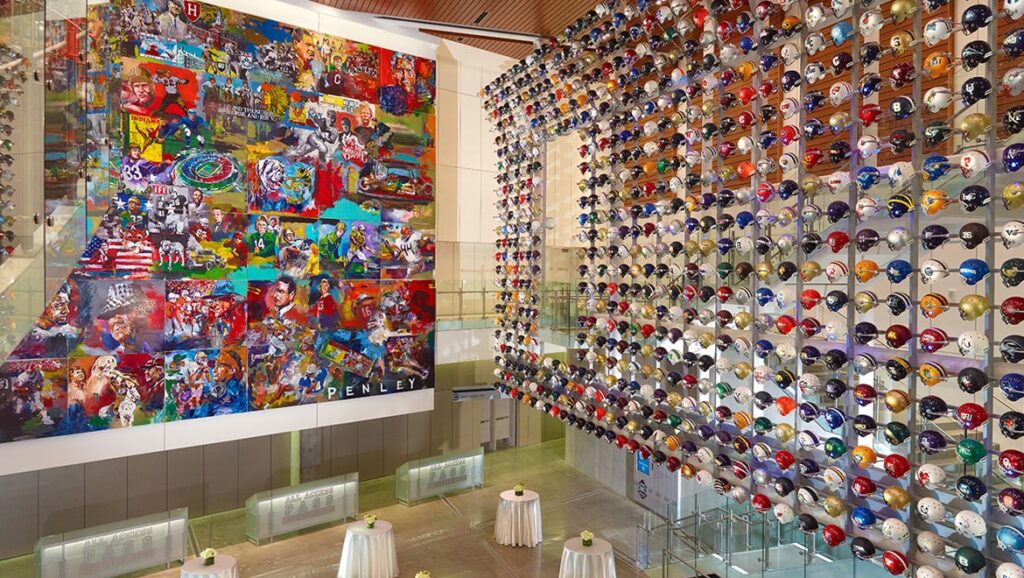
Nearby, the College Football Hall of Fame celebrates the passion of American college football with high-tech exhibits and interactive installations. One standout feature is its personalized welcome: when visitors select their favorite team upon entry, a massive wall of over 700 helmets lights up the one they chose, creating a personal moment that resonates with both die-hard fans and casual observers.
The place has an interesting area where visitors can practice passing the ball as if they were a quarterback. The idea is to try to reach a half-world net that would act as the player receiving the pass.
Then you can kick at the goalposts like a conversion, in the style of the famous Argentinean Gramática. I confess that my hand shot was just short of the target, but my left-footed shot went just over the crossbar next to the right post of the “U”: “golazo”. It was a lot of fun.
The Rise and Fall of Underground Atlanta (and Netflix’s Sci-Fi Revival)
Once a booming underground shopping and nightlife district, Underground Atlanta fell into decline in the early 2000s. But in 2022, Netflix purchased part of the site to use as a filming location, including for Stranger Things. The streaming giant’s investment could mark the beginning of a sci-fi-fueled rebirth for this forgotten but iconic part of the city.
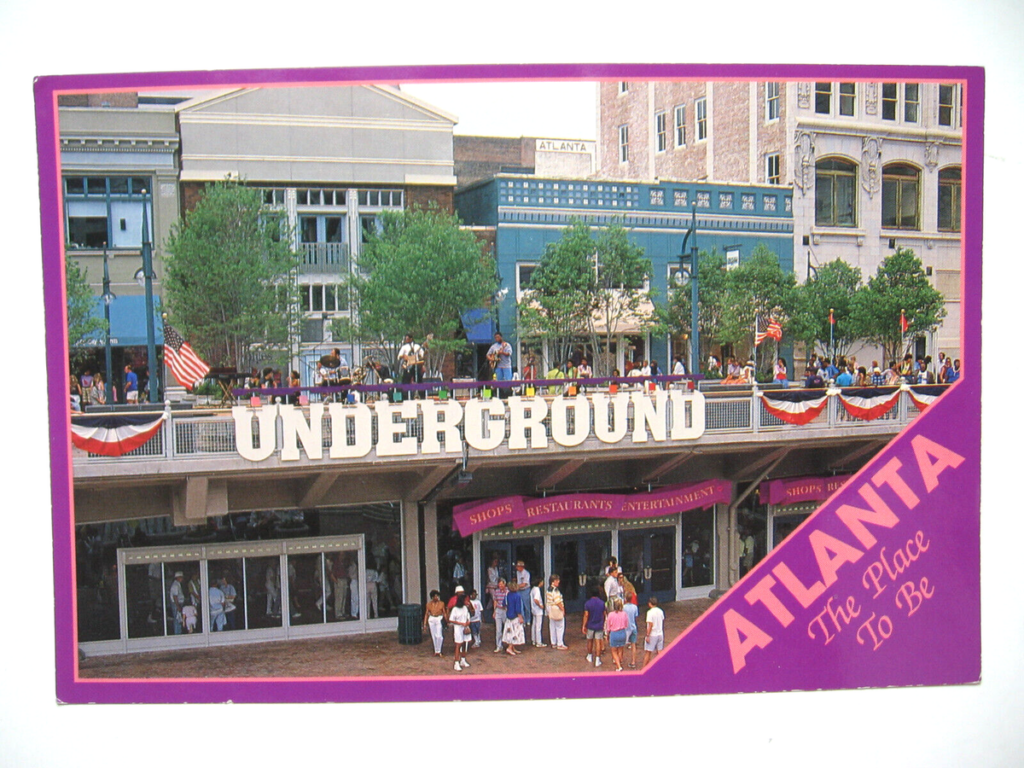
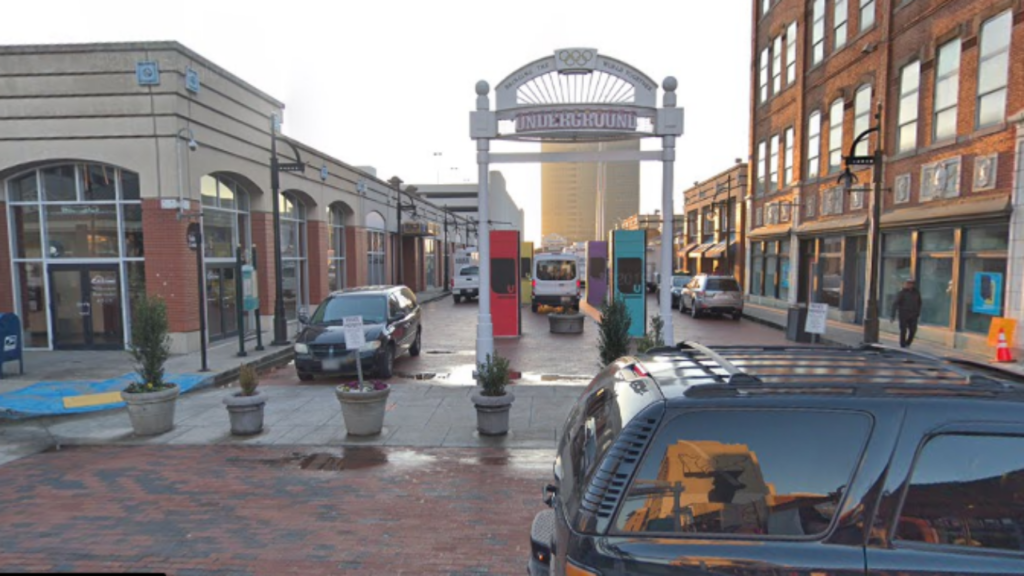
CNN’s Symbolic Farewell
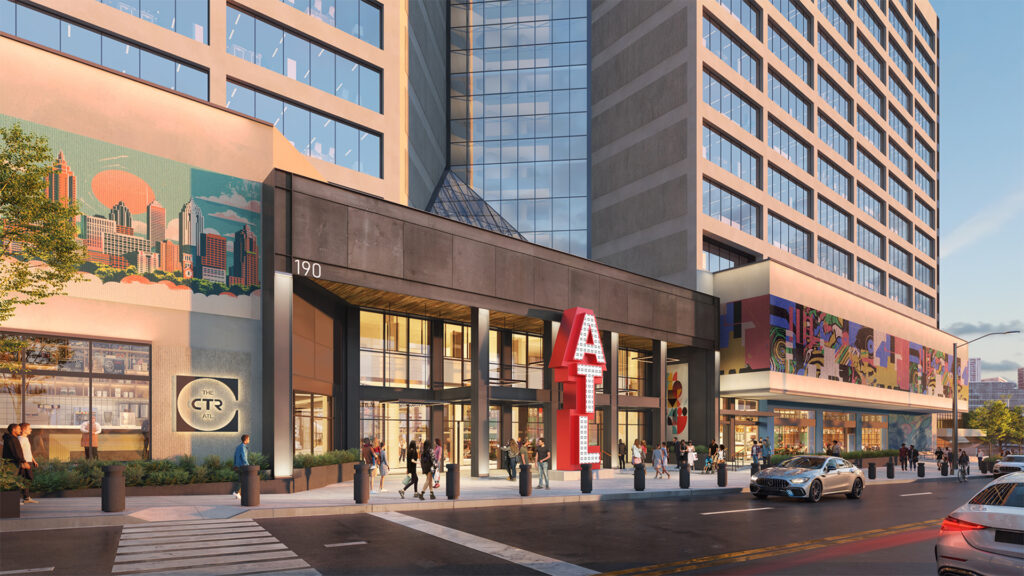
For over three decades, the CNN Center was a landmark of international journalism in downtown Atlanta. In 2023, the network completed its move to the Techwood campus, consolidating its operations and closing its once-popular studio tours. The building is being redeveloped for mixed use, signaling the end of a media era—but perhaps the start of a new chapter for the city.
Sweet Auburn: Atlanta’s Legacy of Black Resilience and Economic Power
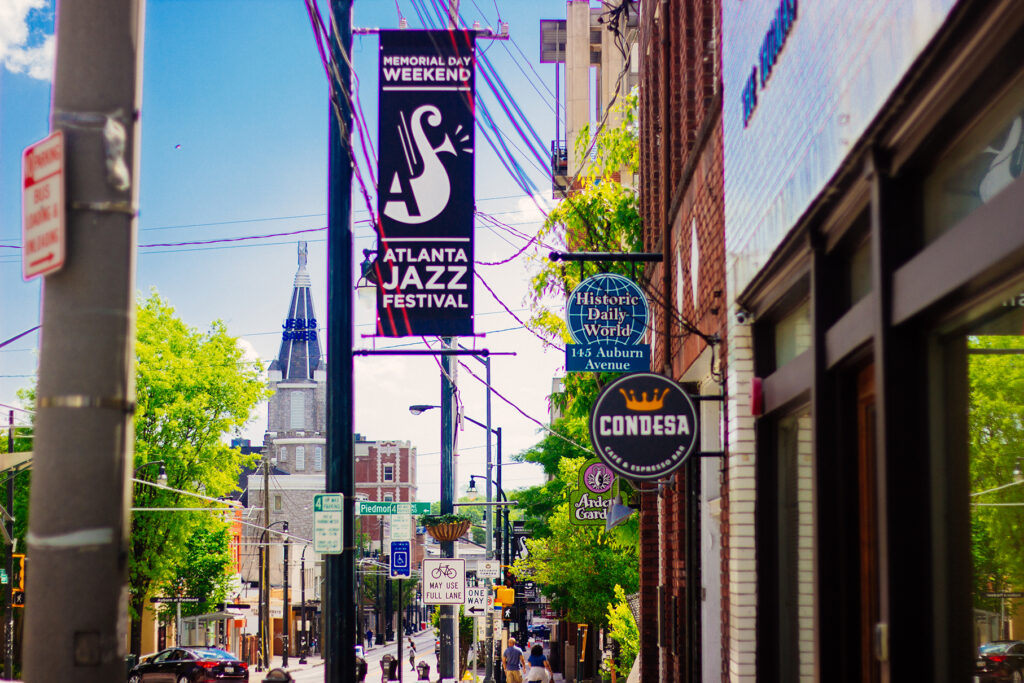
In the heart of East Atlanta, far from the shimmering towers of Midtown and the bustle of Peachtree Street, lies a neighborhood that shaped the soul of a city: Sweet Auburn. Once a thriving center of African-American life, this district gave birth to leaders, businesses, churches—and a sense of self-determination that resonated across the South. Today, it remains a place where history breathes between every storefront and sidewalk.
The Sweet Auburn Curb Market: Born from Segregation, Sustained by Community
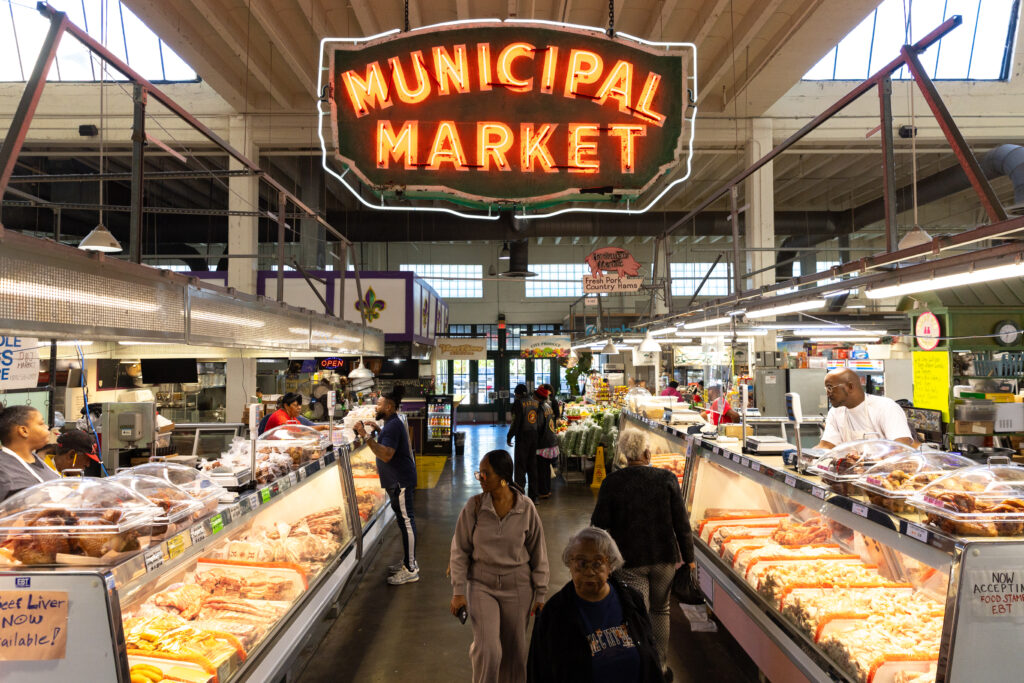
Established in 1918, in the aftermath of the Spanish flu pandemic, the Sweet Auburn Curb Market—officially called the Municipal Market—was created to serve the growing population of East Atlanta. But from the beginning, it bore the weight of racial segregation.
While white vendors set up inside the market building, Black farmers were forced to sell their goods outside, on the curb. That’s how it got its enduring name: the Curb Market.
Despite the discrimination, the market thrived. It became not just a place of commerce, but a pillar of the Black community, where food, conversation, and culture were shared with pride.
Today, the market is a vibrant mix of butchers, bakers, produce stalls, soul food counters, and specialty vendors. Amid the scent of fried catfish or sweet potato pie, you can still feel the legacy of those who carved out space in a city that once excluded them.
Auburn Avenue: The Street of Black Millionaires
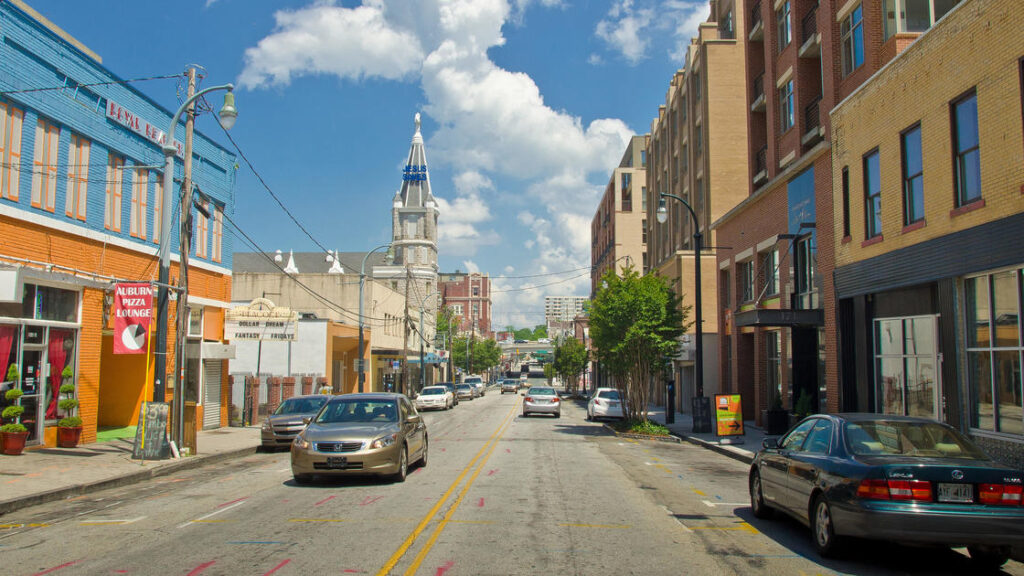
Just outside the market runs Auburn Avenue, famously dubbed by civic leader John Wesley Dobbs as “the richest Negro street in the world”. From the 1920s through the 1950s, Auburn Avenue was the epicenter of Black economic and political life in Atlanta—and one of the most important streets in America.
Banks, insurance companies, law offices, beauty salons, jazz clubs, and newspapers like the Atlanta Daily World flourished here. The avenue was a thriving hub of Black entrepreneurship at a time when opportunities elsewhere were strictly limited by law and violence.
This is also the neighborhood where Martin Luther King Jr. was born, raised, and began preaching at Ebenezer Baptist Church—now a national historic site open to the public. The Martin Luther King Jr. National Historical Park, which includes his childhood home and resting place, anchors the avenue’s legacy.
Auburn Avenue wasn’t just a symbol of progress—it was an act of resistance. In the face of systemic exclusion, Black Atlantans built an economic powerhouse on their own terms.
Decline, Division, and Revival
In the mid-20th century, progress met a roadblock—literally. The construction of the Downtown Connector (I-75/I-85) cut through the heart of Sweet Auburn, physically dividing the community and accelerating its economic decline. Like many predominantly Black neighborhoods across America, urban renewal came at a steep price.
But in recent years, Sweet Auburn has begun a quiet renaissance. Preservation efforts, new businesses, and renewed public interest in civil rights history are breathing new life into the district.
Visiting Sweet Auburn Today
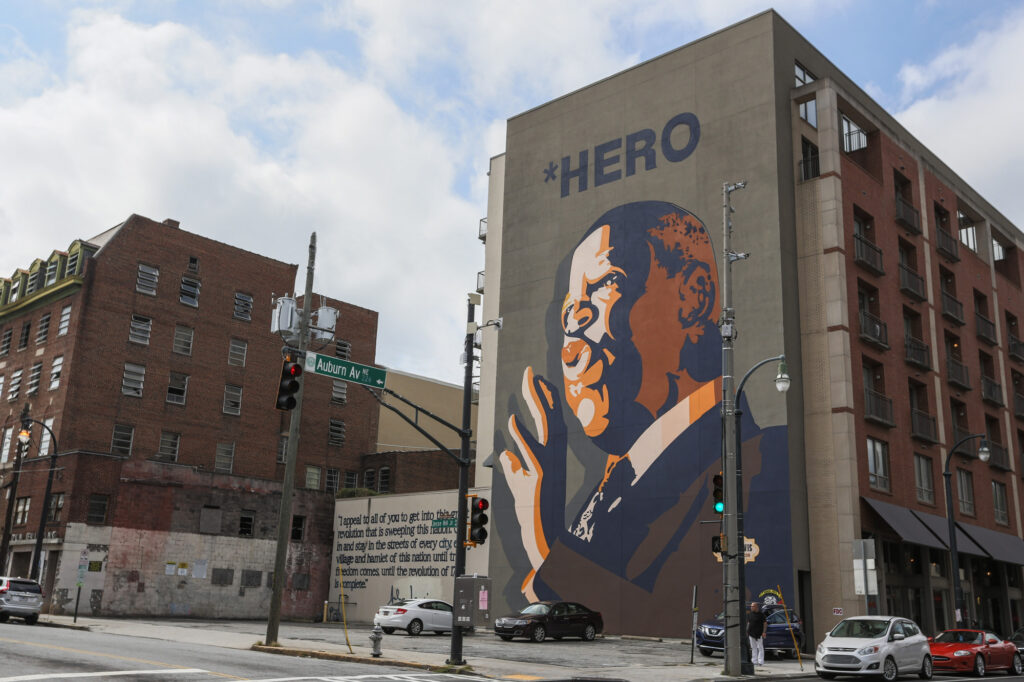
To truly understand Atlanta, one must walk the streets of Sweet Auburn. Visit the Curb Market and savor its food. Reflect inside Ebenezer Baptist Church, where Dr. King once spoke of dreams and justice. Stroll along Auburn Avenue, where ambition once burned so brightly it couldn’t be ignored.
Sweet Auburn is not just a place—it’s a story of courage, community, and unbreakable pride.
It’s a living testament to the fact that Black excellence thrived even when laws said it couldn’t.
A City in Constant Motion
Atlanta is not just a city with history—it’s a city that makes history. Southern and cosmopolitan, wounded and resilient, bold and deeply human. Whether you’re strolling past commemorative bricks in an Olympic park, reflecting in a historic church, tasting your way through a century-old market, or watching a whale shark that flew in FedEx First Class, Atlanta offers the rare chance to witness the past and the future all at once.
Coming soon: Where to eat in Atlanta. Miller Union Restaurant and Fox Bros BBQ

